Filter by
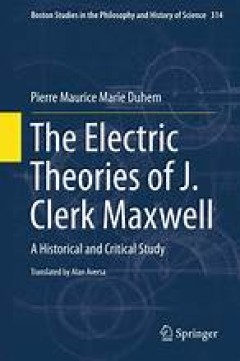
The Electric Theories of J. Clerk Maxwell
In this volume Pierre Duhem first gives an overview of 19th century electricity and magnetism. Next, he applies his keen historical, philosophical, and physical intuition to critiquing Maxwell’s theories, especially his electromagnetic theory of light and the ad hoc introduction of displacement current, which he considers too much a product of the “esprit de géométrie” than the “espri…
- Edition
- 1
- ISBN/ISSN
- 978-3-319-18515-6
- Collation
- XV, 185, 1 b/w illustrations
- Series Title
- Boston Studies in the Philosophy and History of Science
- Call Number
- -

The Educational Significance of Human and Non-Human Animal Interactions
The Educational Significance of Human and Non-Human Animal Interactions explores human animal/non-human animal interactions from different disciplinary perspectives, from education policy to philosophy of education and ecopedagogy. The authors refute the idea of anthropocentrism (the belief that human beings are the central or most significant species on the planet) through an ethical investiga…
- Edition
- 1
- ISBN/ISSN
- 978-1-137-50525-5
- Collation
- XIII, 234
- Series Title
- -
- Call Number
- -
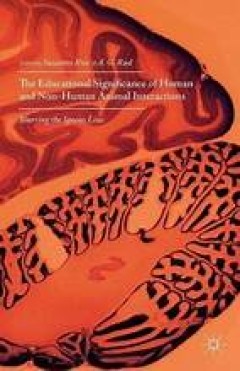
The Educational Significance of Human and Non-Human Animal Interactions
The Educational Significance of Human and Non-Human Animal Interactions explores human animal/non-human animal interactions from different disciplinary perspectives, from education policy to philosophy of education and ecopedagogy. The authors refute the idea of anthropocentrism (the belief that human beings are the central or most significant species on the planet) through an ethical investiga…
- Edition
- 1
- ISBN/ISSN
- 978-1-137-50525-5
- Collation
- XIII, 234
- Series Title
- -
- Call Number
- -
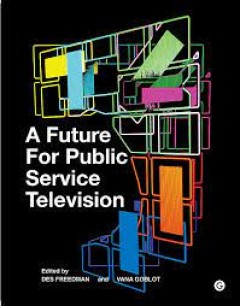
Future for Public Service Television
Television is on the edge of both decline and rebirth. Vast technological change has brought about financial uncertainty and creative possibilities for producers, distributors and viewers. The proliferation of platforms from Amazon and Netflix to YouTube and the vlogosphere means extreme competition for audiences traditionally dominated by legacy broadcasters.
- Edition
- -
- ISBN/ISSN
- 9781906897710
- Collation
- -
- Series Title
- -
- Call Number
- -
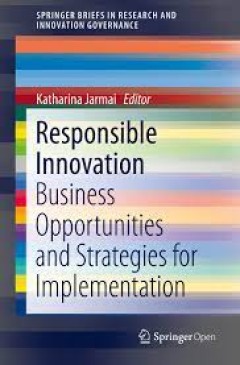
Responsible Innovation Business Opportunities and Strategies for Implementation
This Open Access book, Responsible innovation provides benefits for society, for instance more sustainable products, more engagement with consumers and less anxiety about emerging technologies. As a governance tool it is mostly driven by research funders, including the European Commission, under the term “responsible research and innovation” (RRI). To achieve uptake in private industry is a…
- Edition
- -
- ISBN/ISSN
- -
- Collation
- -
- Series Title
- -
- Call Number
- -
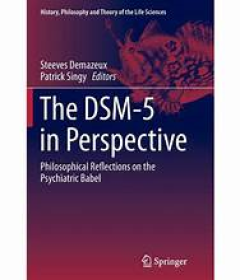
The DSM-5 in Perspective
Since its third edition in 1980, the Diagnostic and Statistical Manual of Mental Disorders (DSM) of the American Psychiatric Association has acquired a hegemonic role in the health care professions and has had a broad impact on the lay public. The publication in May 2013 of its fifth edition, the DSM-5, marked the latest milestone in the history of the DSM and of American psychiatry. In The DSM…
- Edition
- 1
- ISBN/ISSN
- 978-94-017-9765-8
- Collation
- XXIV, 238
- Series Title
- History, Philosophy and Theory of the Life Sciences
- Call Number
- -
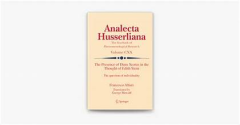
The Presence of Duns Scotus in the Thought of Edith Stein
This book examines the phenomenological anthropology of Edith Stein. It specifically focuses on the question which Stein addressed in her work Finite and Eternal Being: What is the foundational principle that makes the individual unique and unrepeatable within the human species? Traditional analyses of Edith Stein’s writings have tended to frame her views on this issue as being influenced by …
- Edition
- 1
- ISBN/ISSN
- 978-3-319-15663-7
- Collation
- XV, 184, 6 b/w illustrations
- Series Title
- Analecta Husserliana
- Call Number
- -

Crafting the 613 Commandments Maimonides on the Enumeration, Classification,…
Rabbinic tradition has it that 613 commandments were given to Moses on Mount Sinai, but it does not specify those included in the enumeration. Maimonides methodically and artfully crafts a list of 613 commandments in a work that serves as a prolegemenon to the Mishneh Torah, his monumental code of law. This book explores the surprising way Maimonides put this tradition to use and his possible r…
- Edition
- -
- ISBN/ISSN
- 9781618118486
- Collation
- -
- Series Title
- -
- Call Number
- -

Otto Bauer (1881-1938) Thinker and Politician
Gegenstand des Buches ist die Darstellung Otto Bauers als führende Gestalt des Austromarxismus und der SDAP, sowie die kritisch-analytische Lesart seiner philosophisch-historischen, wirtschaftlichen, soziologischen und sozialpolitischen Theorien, die vor dem Hintergrund der damaligen Diskussion in der II. und der III. Internationale, der politischen Ereignisse in der SDAP, der internationalen …
- Edition
- -
- ISBN/ISSN
- 9789004325838
- Collation
- -
- Series Title
- -
- Call Number
- -
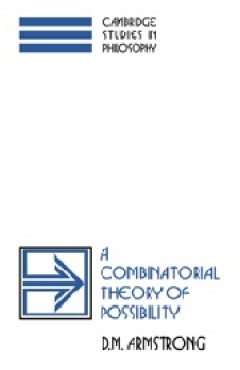
A Combinatorial Theory of Possibility
David Armstrong's book is a contribution to the philosophical discussion about possible worlds. Taking Wittgenstein's Tractatus as his point of departure, Professor Armstrong argues that nonactual possibilities and possible worlds are recombinations of actually existing elements, and as such are useful fictions. There is an extended criticism of the alternative-possible-worlds approach champion…
- Edition
- -
- ISBN/ISSN
- 9781139172226
- Collation
- -
- Series Title
- -
- Call Number
- -
 Computer Science, Information & General Works
Computer Science, Information & General Works  Philosophy & Psychology
Philosophy & Psychology  Religion
Religion  Social Sciences
Social Sciences  Language
Language  Pure Science
Pure Science  Applied Sciences
Applied Sciences  Art & Recreation
Art & Recreation  Literature
Literature  History & Geography
History & Geography